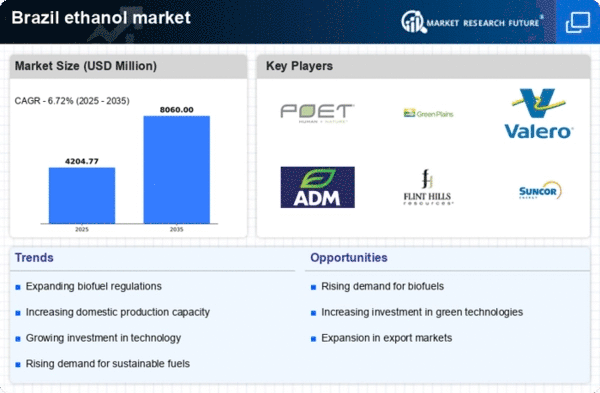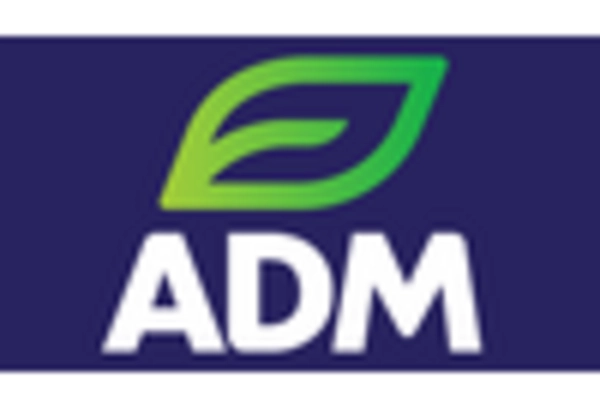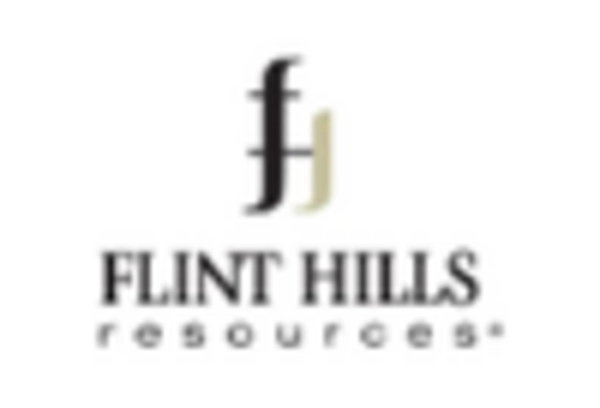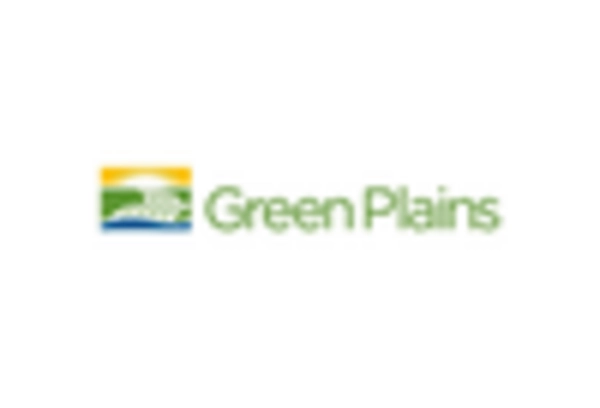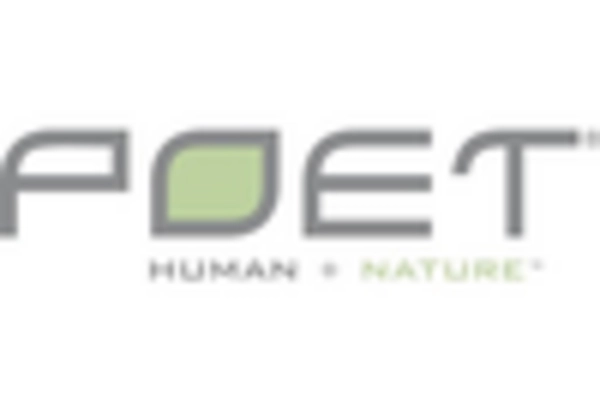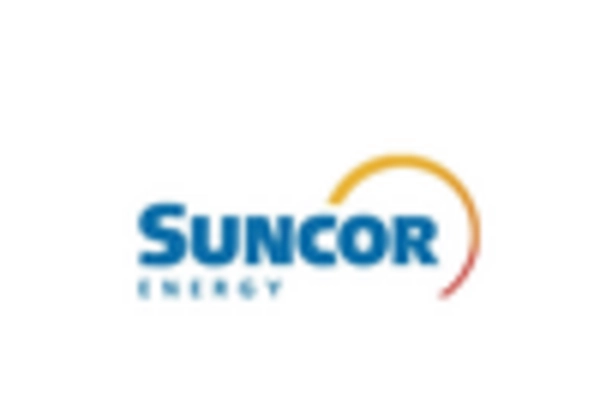The ethanol market in Brazil is characterized by a dynamic competitive landscape, driven by a combination of domestic demand for renewable energy and government policies favoring biofuels. Key players such as Cosan Limited (BR), Raízen S.A. (BR), and Archer Daniels Midland Company (US) are at the forefront, each employing distinct strategies to enhance their market positions. Cosan Limited (BR) focuses on vertical integration, optimizing its supply chain from sugarcane cultivation to ethanol production, which allows for cost efficiencies and product quality control. Raízen S.A. (BR), a joint venture between Cosan and Shell, emphasizes innovation in production technologies and sustainability initiatives, positioning itself as a leader in environmentally friendly practices. Meanwhile, Archer Daniels Midland Company (US) leverages its extensive global network to enhance distribution capabilities, indicating a strategy centered on market penetration and expansion.The business tactics employed by these companies reflect a moderately fragmented market structure, where local manufacturing and supply chain optimization are critical. The collective influence of these key players shapes competitive dynamics, as they strive to balance operational efficiency with sustainability goals. The emphasis on local production not only reduces transportation costs but also aligns with Brazil's commitment to renewable energy, further intensifying competition among domestic and international firms.
In October Raízen S.A. (BR) announced a significant investment in advanced fermentation technology aimed at increasing ethanol yield from sugarcane. This strategic move is expected to enhance production efficiency and reduce costs, thereby strengthening Raízen's competitive edge in the market. The investment underscores the company's commitment to innovation and sustainability, aligning with global trends towards cleaner energy sources.
In September Cosan Limited (BR) expanded its partnership with a leading technology firm to develop AI-driven analytics for optimizing its ethanol production processes. This collaboration is poised to enhance operational efficiencies and reduce waste, reflecting a broader trend of digital transformation within the industry. By integrating advanced technologies, Cosan aims to maintain its leadership position while addressing environmental concerns.
In August Archer Daniels Midland Company (US) completed the acquisition of a local ethanol producer in Brazil, enhancing its market presence and distribution capabilities. This acquisition is strategically significant as it allows Archer Daniels Midland to leverage local expertise and expand its footprint in a rapidly growing market. The move indicates a shift towards consolidation in the sector, as companies seek to enhance their competitive positions through strategic acquisitions.
As of November the competitive trends in the ethanol market are increasingly defined by digitalization, sustainability, and technological integration. Strategic alliances are becoming more prevalent, as companies recognize the need to collaborate in order to innovate and meet evolving consumer demands. The competitive landscape is likely to evolve from traditional price-based competition towards a focus on innovation, technology, and supply chain reliability, suggesting that companies that prioritize these areas will be better positioned for future success.


